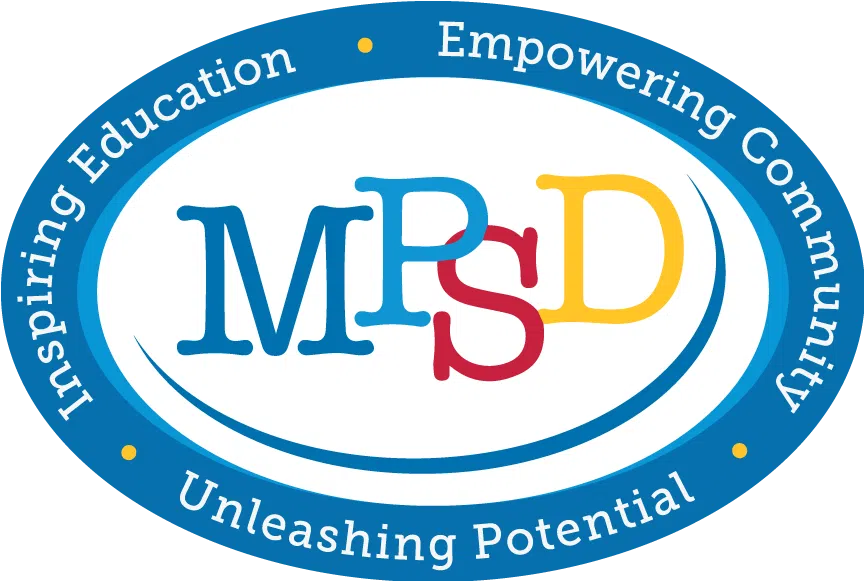Seehafernews.com asked the Manitowoc Public School Board candidates another round of questions before the April 1st General Election. The questions were: Numbers from the Wisconsin Department of Public Instruction showed that the district’s reading and math scores are improving. What more can be done to ensure that MPSD continues to strengthen in scores? The number of students participating in some sports is down. What can the school board or the district do to encourage more multi-sport athletes and increase the number across the board?
These are their responses in the order in which they were received.
Mary Lofy Blahnik

- Numbers from the Wisconsin Department of Public Instruction showed that reading and math scores are improving in the district. What more can be done to make it, so MPSD continues to improve in scores? First and foremost, it will be essential for the administration and staff to continue to foster a reading and math culture at their schools. Celebrating the gain in scores, but also setting goals for continued improvement, becomes “how we do things” in our schools for both students and staff. Administration needs to continue to get into classrooms and provide feedback to teachers on their contributions to the culture and student achievement. Additionally, supporting teachers with professional development on instructional strategies, and providing time within their weekly schedules to meet and analyze student data to better guide daily instruction, as well as targeted interventions for students who struggle and students who need additional challenges. As new teachers are on boarded during the school year, it is imperative to support their professional learning. Actively using the reading and math specialists to support all teachers with coaching cycles has proven great success in many districts, and it will be imperative with the adoption of a new HMH reading curriculum and continued implementation of the Bridges math program. Encouraging families to read with children and involving them in math activities at home, such as cooking, budgeting, and building projects. Families who model the use and enjoyment of reading and math at home set their children up for additional achievement at school. I appreciate that the schools promote community events where families can participate in STEM, reading, and hands-on activities. Our public library regularly offers these types of events for free. I regularly promote the second Tuesday of each month when therapy dogs read with children at the library, as my dog Chip and I volunteer for this. Finally, address the non-academic barriers that are getting in the way of learning. This includes basic needs, such as nutrition, mental health, and sleep. It also includes addressing challenging student behaviors that present in the classroom so students can focus on learning.
- The drop in participation is taking place across the state, so this is not unique to Manitowoc. Many districts have found success at promoting involvement starting at the elementary level, and I recently heard about this at a January MPSD board committee meeting, with a discussion of elementary athletics/activities by AD Stan Diederich. Numerous research studies have shown that student involvement in extracurriculars has increased academic performance, social/emotional benefits, and life skills development. It would be important for administration and staff to continue to communicate and promote these benefits with students and their families. I recently attended a girls’ basketball game at LHS and was surprised by the small crowd size. An additional area for promotion would be to get families to these games and see the excitement of team competition and participation in the pep band, dance squad, etc. Perhaps regularly encourage elementary and middle school students with free attendance at sports events, musicals, and any extracurricular offerings. In a district where I was employed, the administrative staff carefully monitored student extracurricular participation. They regularly reached out to students who were not involved in at least one extracurricular activity. Typically when students chose an activity, they realized they could balance their time with academics and indicated they felt more engaged in school. Students reported that they appreciated the opportunity to increase skills in teamwork, leadership and social skills that are part of extracurriculars. These skills translate to future opportunities in their post-high school experiences and careers, and we owe it to our students to help them understand this connection.
Ann Holsen

- There are three areas I believe we can focus on in supporting continuous improvement in our scores including educator support, access to early education programs, and motivating higher grade levels. Teachers and administrators have worked countless hours to improve reading and math scores, and their ideas are valued. To ensure MPSD continues improving reading and math scores, we should continue to provide educator support for the chosen curricula that align with WI Act 20 requirements. Professional development for teachers is essential. Ongoing training in instructional methods and best practices for teaching literacy and math empowers educators to effectively engage students. Expanding access to early education programs can give children a strong foundation before entering elementary school, setting them up for long-term success. Encouraging enrollment in our MPSD 4K programs is a step in the right direction. One of our student representatives provided feedback that, at higher grade levels, motivation to learn may be driven by electives in their areas of interest. Critical thinking and “what’s in it for me” at higher grade levels are important to consider. By combining these three strategies, MPSD can continue its upward trajectory in reading and math achievement.
- To encourage more multi-sport athletes and boost participation in sports, we should first seek to understand the reasons that participation is down. Asking students, parents, and coaches this question in a district survey may be the place to start. Based on responses, a few of the following items may be appropriate. Promoting the benefits of being a multi-sport athlete—such as improved overall fitness, teamwork, and time management—through school campaigns or sports assemblies could raise awareness. A good example is encouraging signs with Junior Ships programs at the elementary levels. More flexible training schedules that don’t overlap as much might allow students to participate in multiple sports without conflicting commitments. Coaching collaboration across teams would be beneficial here. Coaches often work together to ensure that athletes aren’t overburdened with training schedules, helping them balance multiple sports. Additionally, reducing the financial barrier by offering more scholarships or funding for sports equipment and travel expenses can make participation more accessible. The JFK Fieldhouse is a great location for hosting regional and sectional games that bring in revenue for athletic programs. This community outreach, along with other fundraisers, continues to help with funding. Finally, showcasing the success of multi-sport athletes could further encourage students to get involved in various sports. These steps can help increase participation, fostering a more active and well-rounded student body.
Chrystal Myer

- I would suggest bringing in volunteers to assist in the classrooms for reading and math to ensure every child gets the help they need. The current board majority just voted last month to terminate the contract for the current SFA reading program in June. This was done without a new program ready to take its place and knowing it was the first program in years working and raising scores. We need to have a reading program in place. Because of this poor decision-making, the board will need to start all over with a new program. This decision was made after numerous staff spoke at board meetings about how they like SFA and what great things they were seeing, including scores going up. It is things like this that show the community why a change is needed on the school board.
- As a mother of four children that were born and raised in Manitowoc, were Lincoln High School graduates and were multi-sport athletes throughout the MPSD, I can personally say I can relate to this question with over 30 years of my involvement with the MPSD. Having previously served three consecutive terms (nine years) on the MPSD school board and as president, I have the knowledge and experience dealing with many sports and sport related issues over the years. It is important that every child knows they are able to try out for all sports. From grade school on, the MPSD can advertise and encourage sport opportunities and benefits of each sport for students starting at a younger age to get them motivated and involved in sports. I believe students participating in sports helps build relationships, teaches teamwork, gains valuable experiences, learns life lessons, builds memories and is good exercise for the students, to name a few positives. MPSD has a lot to offer when a parent is looking to decide what school their child will go to and having great sport programs that thrive can make a difference.
Brayden Myer

- When it comes to improving scores for any subject, the content of a curriculum as well as merit-based hiring and maintaining of quality staff are perhaps the most important variables. Those two variables not only complement each other, they are co-dependent. You can have the most qualified teachers, but if what they are given to teach does not suffice, then success will not be found. It is the same for when those variables are switched. The increase in reading scores has been attributed to the district’s Success for All curriculum. To take a look at the district’s previous reading curriculum, Lucy Calkins, that failed to produce positive results. The portion of students reading at grade level in our district before Success for All was implemented was 30%. After the first year of SFA, district reading scores increased 20%, and continue to do so in its second school year. It has built-in measurements to show whether student learning has benefited, which it has. The consistency across schools is a grand and much needed change for our district. I have watched as SFA educators have spoken to the board about their positive experiences with this whole school reform, only for the board members who were previous educators to not acknowledge their voices later in discussion. I highly oppose the district’s discontinuation of the third year of SFA’s contract, which was done without having another curriculum ready to take its place at the time of that decision. I am certain the true, unspoken reasoning for the opposition of SFA was not centered around finances, but the maintaining of political power. Right now, we are seeing a repeat of 2023, where the school district is looking at the Houghton and Mifflin Harcourt curriculum. If you go to their website, you will see their company’s DEI statement. I cannot support any curriculum that has DEI in it, and believe all discriminatory initiatives like DEI must be eliminated. We also need to get rid of social-emotional learning, which creates a group think based on feelings rather than rationality. All curriculum components containing SEL need to be replaced with critical thinking modules.
- For many in our district, sports are an important part of their families. I was born and raised in Manitowoc and attended MPSD schools. I played football and baseball. Many students enjoy playing sports as they are passionate about them. Sports also provide students with the opportunity to meet new friends and develop memories. I would love to see a future athlete originate from Manitowoc. We may even have future Packer and Badger players attending our district now. I support allocating funding to keep our district’s sports alive and provide students with the same opportunities I had when I went through the public education system. If our district does not currently offer a sport and enough students are interested in forming a team, I am open to providing the necessary resources to allow that to happen. When it comes to girls’ sports, some girls may not be comfortable participating if they have reason to believe there is a risk of a boy participating on a girls’ sports team and using girls’ locker rooms. Even though the Executive Order ‘Keeping Men Out of Women’s Sports’ has been signed, some districts across the nation have ignored that. Wisconsin has had this issue over the past few years, such as the situation in Sun Prairie in 2023 when an 18-year-old man claiming to be a woman entered a women’s locker room with four freshman girls and completely undressed in front of them. I am firm in defending women and preserving their safety and dignity. That is why I traveled to Madison to testify before the Assembly Committee on Education in favor of bills alongside Scarlett Johnson. One was Assembly Bill 100, which prevents boys from participating on girls’ sports teams and using girls’ locker rooms in K-12 schools. Unfortunately, keeping boys out of girls’ sports is not a unanimously agreed upon stance among all the candidates in this race. My male opponent has stated he is ok with boys participating in girls’ sports as long as they use testosterone blockers. Testosterone blockers do not change bone density, muscle mass, and other differences in the biological composition of the two sexes. I oppose boys participating in girls’ sports in all instances and do not believe children should be given puberty blockers, which permanently damage their bodies. It is an extremist position, politically and morally, to be ok with this.
Lisa Anne Krueger

- Unfortunately, I would take these most recent test scores with a grain of salt, knowing that the Wisconsin Department of Public Instruction (DPI) has lowered the threshold for what is proficient and changed the terms to describe student success. DPI is also no longer using “proficient”, “basic”, and “below basic” but instead using “advanced”, “meeting”, and “approaching and developing”. Comparing the test scores from the previous year is not utilizing the same criteria and is not, in my opinion, an accurate comparison we can rely on for such policy-influencing decisions. I would focus much more on our internal data that is scored multiple times during the school year. This will give us a more accurate, comprehensive picture, as opposed to merely focusing on just one state test. “District-wide, 47% of students were proficient/reading at grade level in the fourth quarter, up 16 percentage points from 31% at the start of the year. These quarterly scores are based on three sources: Our new science of reading curriculum called Success For All (SFA), FastBridge (a nationally-normed assessment), and teacher/SFA facilitator observations.” I feel it is important to have a comprehensive checks and balances focus of different testing data to give a better picture of the true validity of students’ scores, organized and easily accessible, understandable and transparent to maximize inclusivity and community focus within our MPSD. I was unable to find any data on the math scores on the MPSD website online. Monitoring the success or shortcomings of any curriculum objectively without political distractions is imperative as well. I feel the SFA program was on the right track; until the School Board voted to get rid of it. Shouldn’t the primary focus be on our children and giving them the best education possible? Why does it sometimes seem like personal focuses are prioritized? As a mom, and as an active and well-versed community member, my primary concern is that all our students are able to achieve grade-appropriate fluency in math, reading, and writing. Prioritizing other items and thus abandoning the prioritization with the finite time needed to help these kids is not the approach our district needs to embrace.
- Perhaps having short sampler sessions where students can experience the extracurriculars available would garner more specific appeal and interest. Also, different sporting events could run promotions for “interest nights” that cater to prospective students/parents. As a follow-up, district volunteers could then survey the students and parents to gauge efficacy.
We also sent the questions for Candidate David Bowman, who is also running for the school board, but we did not receive answers from him.











